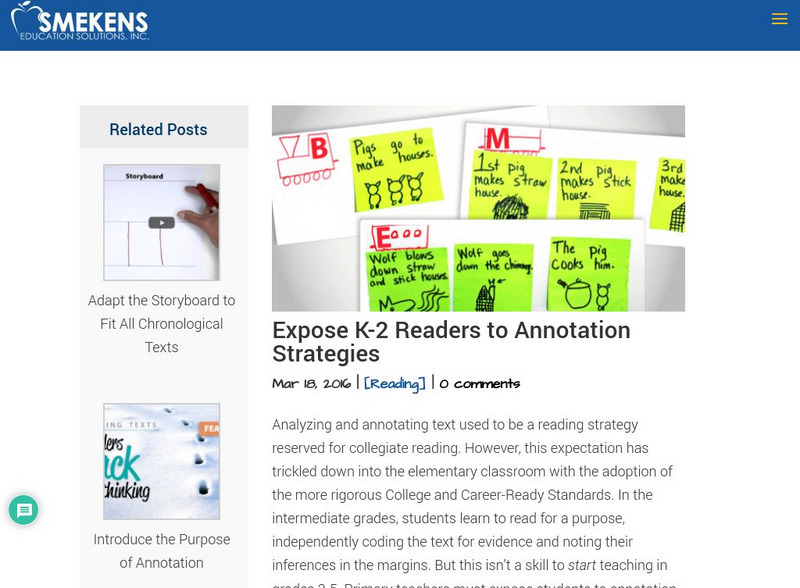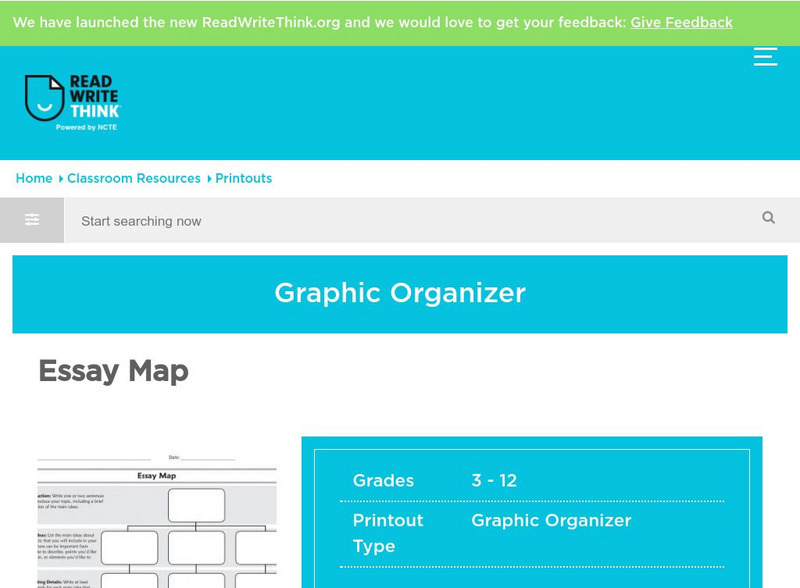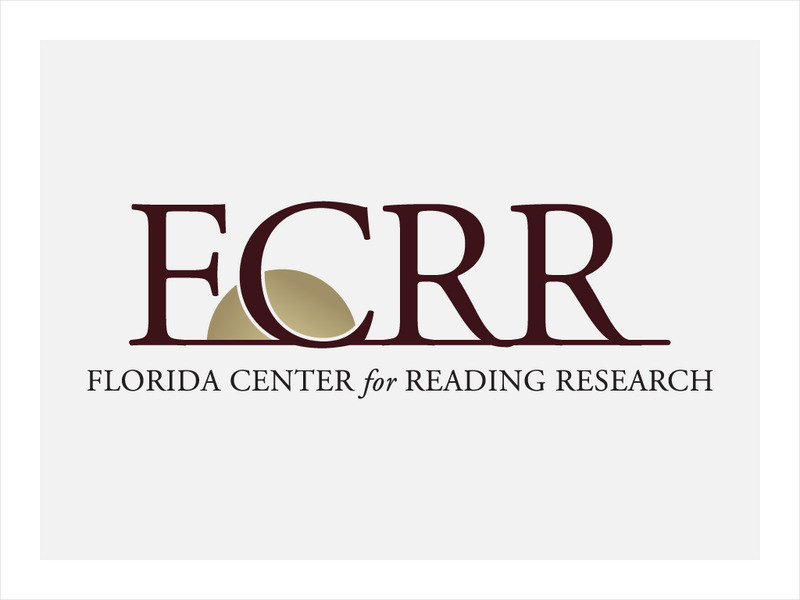Other
Smekens Educational Solutions: Expose K 2 Readers to Annotation Strategies
This article discusses how to begin teaching students in K-2 to record their ideas about text using highlighters, colored pens, large graphic organizers, and sticky notes. Students can retell a story with a storyboard, use a web to find...
Better Lesson
Better Lesson: Topic Sentences
Often, we ask young scholars to find the main idea in the story- this helps when re-telling. Why not apply this idea to writing? Find the main idea and introduce your writing with that idea; just like with a book, it helps with...
CPALMS
Cpalms: It's All in the Details
Using this comprehensive lesson plan, learners will use a web graphic organizer to learn to record the main idea and details learned from informational text read aloud to them.
ReadWriteThink
Read Write Think: Essay Map
A fillable essay map in PDF format with boxes for an introduction, main ideas, supporting details, and a conclusion. Directions on how to use this type of graphic organizer as well as lists of teaching ideas and related resources are...
Florida Center for Reading Research
Florida Center for Reading Research: Expository Exploration [Pdf]
A lesson plan in which students read a text and complete a graphic organizer to identify the main idea and supporting details. Materials are included.
Florida Center for Reading Research
Florida Center for Reading Research: Expository Text Structure: Just the Facts
A lesson plan in which students read a text and complete a graphic organizer to identify the topic and supporting details or facts. Materials are included.
Scholastic
Scholastic: Investigating Nonfiction Part 3: Independent and Guided Reading
This article provides tips for using nonfiction with guided reading and independent reading. The following strategies are shared: ways to help kids select "just right" nonfiction books; lessons to use with nonfiction in guided reading...




![Florida Center for Reading Research: Expository Exploration [Pdf] Lesson Plan Florida Center for Reading Research: Expository Exploration [Pdf] Lesson Plan](https://content.lessonplanet.com/knovation/original/509114-1621b87800788ad03f8f6464b347c698.jpg?1661786951)

